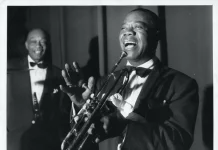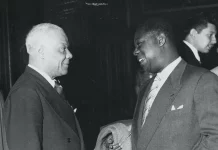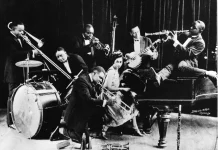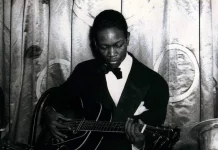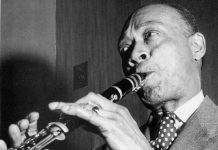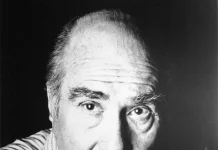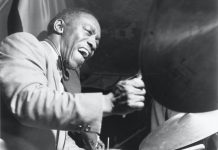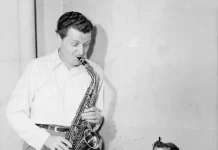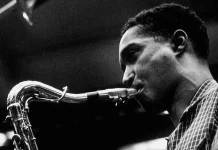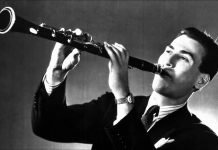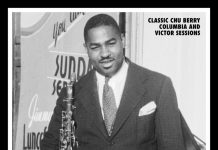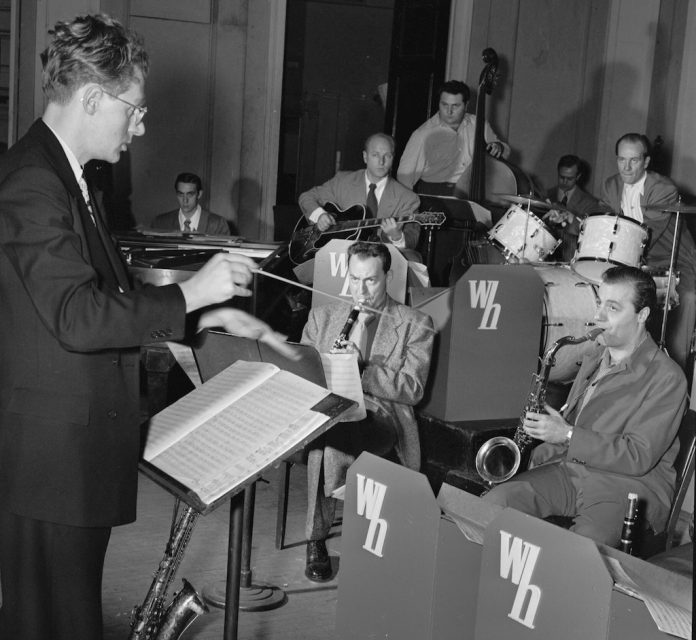
I’ve just acquired the late (he died on 23 February) Ira Gitler’s master work Swing To Bop. It’s a pity I didn’t have it before I wrote the piece on Woody Herman, because there’s a revealing interview with Neal Hefti in which the great arranger turns Woody’s Stravinsky episode on its head – at least in respect of Igor first approaching the band.
Neal had left the band in California to get his union card. He rejoined Woody after six months to sit alongside his old pal Pete Candoli. Igor, then a very fashionable composer, was a hero to young musicians like Candoli and Hefti.
“So Pete asked me”, said Neal, “if, while on the Coast, I’d met Igor, and I said sure I did. I hadn’t though. And I said I did.
“And he said ‘Oh, God!’ I told him ‘I played him the records and he thinks they’re great’. That got back to Woody and Woody went to Lou Levy, who was the publisher then of Stravinsky’s works and a lot of Woody Herman’s works, and that led it in. I think it was just my out fantasy that I had met and hung out with Igor and played him Woody Herman’s records and that he became obsessed with what a great band it was, because two days after I said this, they had heard from one another. It might have been just my absolute child fantasy that I had met God and told him that I was playing with Woody Herman, played him the records and he said ‘That’s great. I’d like to write something for it’. He probably never even heard the band until Lou Levy got in touch with him. Who knows? I don’t know”.
Lester and Buck ascendant
The Downbeat style guide was still some years off in January 1937 when John Hammond’s column appeared under the heading “Goodman ‘Killer’ Arrangements Detracts From Bands Musicianship”.
“Things go on placidly enough in this city of ours. Count Basie broke no records at Roseland but sounded on occasions quite magnificent, at least to these ears. During his last week there, occupying Woody Herman’s bandstand, the orchestra really outdid itself, but I may as well warn the readers that mine is still a minority opinion about the band. The great drawback is its inconsistency: the ability to sound magnificent and clean and in tune when a handful of people are in the place and quite the opposite when there is a large and critical crowd. In fairness to the band, however, I think it only fair to say that this stage is definitely passing.
“The other night Benny Goodman, Basie, Lester Young, Jo Jones, Buck Clayton and Harry James got together in a small Harlem joint and jammed from two fifteen to six in the morning. The music was something tremendous, for everyone distinguished himself. But one conclusion was inescapable: that Lester Young was not only the star of the evening, but without doubt the greatest tenor player in the country. In fact, I’ll stick my neck out even further: he is the most original and inventive saxophonist I have ever heard. Buck Clayton sounded more like my two favourite trumpet players – Bill Coleman and Joe Smith – than any other in this country. He has tremendous feeling, warm tone, a complete lack of exhibitionism and all the other qualities that will never make of him a commercial triumph. The rhythmic background of Basie and Jones was quite superlative, sending Benny and his trumpeter Harry James to heights rarely reached at the Hotel Pennsylvania.
“Before leaving for the William Penn Hotel in Pittsburgh the Count’s bands made four sides for Decca including Honeysuckle Rose and Walking In The Park. I was not in the studio and can give you not even a hint as to the results. This afternoon Lester Young, Walter Page, Jo Jones, Buck Clayton, a certain clarinettist, Billie Holiday and Freddie Green are all recording with Teddy Wilson up at Brunswick and I will be disappointed indeed if this is not the best date of the year”.
Mulligan ambushed
Gerry Mulligan and the quartet appeared on a national television show. After the group had played a number the rather aggressive host began to interview Gerry. Before the show Mulligan had rehearsed briefly with the man, and given him a lot of information, including the fact that he’d been gaoled for drug offences. The man began, as though raising the subject with Gerry for the first time, “I understand that you were involved with drugs and served some time because of it”. The saxophonist was thus cornered, with nothing really to say.
Bob Brookmeyer, sitting alongside Gerry, jerked his thumb at drummer Mel Lewis and said ‘We’ve got a Jewish drummer. Will that help?’
Mulligan had over the years employed many black musicians during his career, but at this time the quartet was all white. The interviewer swiftly followed up with “I notice that there are no black musicians in the group. Is this accidental or by design?”
Bob Brookmeyer, sitting alongside Gerry, jerked his thumb at drummer Mel Lewis and said “We’ve got a Jewish drummer. Will that help?”
Punters
The Ted Heath band was on tour in Ireland when one of the dancers approached Ted at the mike. “Do you play requests?” he asked.
“We’ll try”, said Ted. “What would you like?”
“Oh, anything”, said the Irishman.
The Lyttelton band was playing at a club in Stockwell, near Brixton. The ladies’ lavatory was on the left-hand side of the stage and the girls had to walk in front of the stage to get to it. Jimmy Skidmore was at the end of the band nearest to the door. “Mention my name and you’ll get a good seat”, he said to one young lady and it wasn’t surprising that another young lady was upset when, coming out of the loo, Skidmore asked “Could you hear us? Because we could hear you”.
Don’t mess with Mr. B
By anybody’s standards, Earl Hines was an outstanding virtuoso of the piano from the days with Louis onwards. But he and his vocalist Billy Eckstine suffered like any other black musicians when they toured in the South. One night they were playing at a white segregated dance in Georgia when suddenly all the lights went out and fireworks were thrown at the band. The hall had only one exit and the dancers stampeded towards it, thinking that bombs were going off. It was amazing that nobody was badly injured. When the band travelled north at the end of the tour they sat in what was called a ‘Jim Crow car’.
‘In those days they had segregated trains and the black car was always right behind the coal car, so that all the dirt and dust would fly in on us’
“In those days they had segregated trains”, recalled Eckstine, “and the black car was always right behind the coal car, so that all the dirt and dust would fly in on us. There was an old, rotten cracker in the coach next along, and he did a lot of eating. When he got through with something, he’d open the door and throw his garbage into our section.
“When you got to Washington you’d left the South and were all right. I jumped off the train and waited for this cracker. I hit him and he slid backwards. I grabbed him and hit him again and he started crawling under the train. ‘I gonna whip your ass and back under again’, I told him”.
It was obviously advisable not to mess with Mr B.
Bechet’s clarinet
I was so carried away by Sally Evans-Darby’s enthusiasm for the 1952-58 Sidney Bechet Plays Sidney Bechet (Jazz Images 38100) that I bought a copy at once. But I fear Sally and Jazz Images were carried away, with both of them, and by proxy this magazine, claiming that Sidney plays clarinet on the album. As I suspected beforehand, he does not. I have particular reason to be sensitive in this matter for, on the only occasion I met my hero, I began our interview by asking “We all loved your sensitive clarinet playing, but then in 1948 you gave the instrument up and never played it again. Why was that?”
“That’s an interesting question”, said Sidney. “And I’ll answer it with another one. What the hell’ it got to do with you?”
And he got up and walked out of the room.

